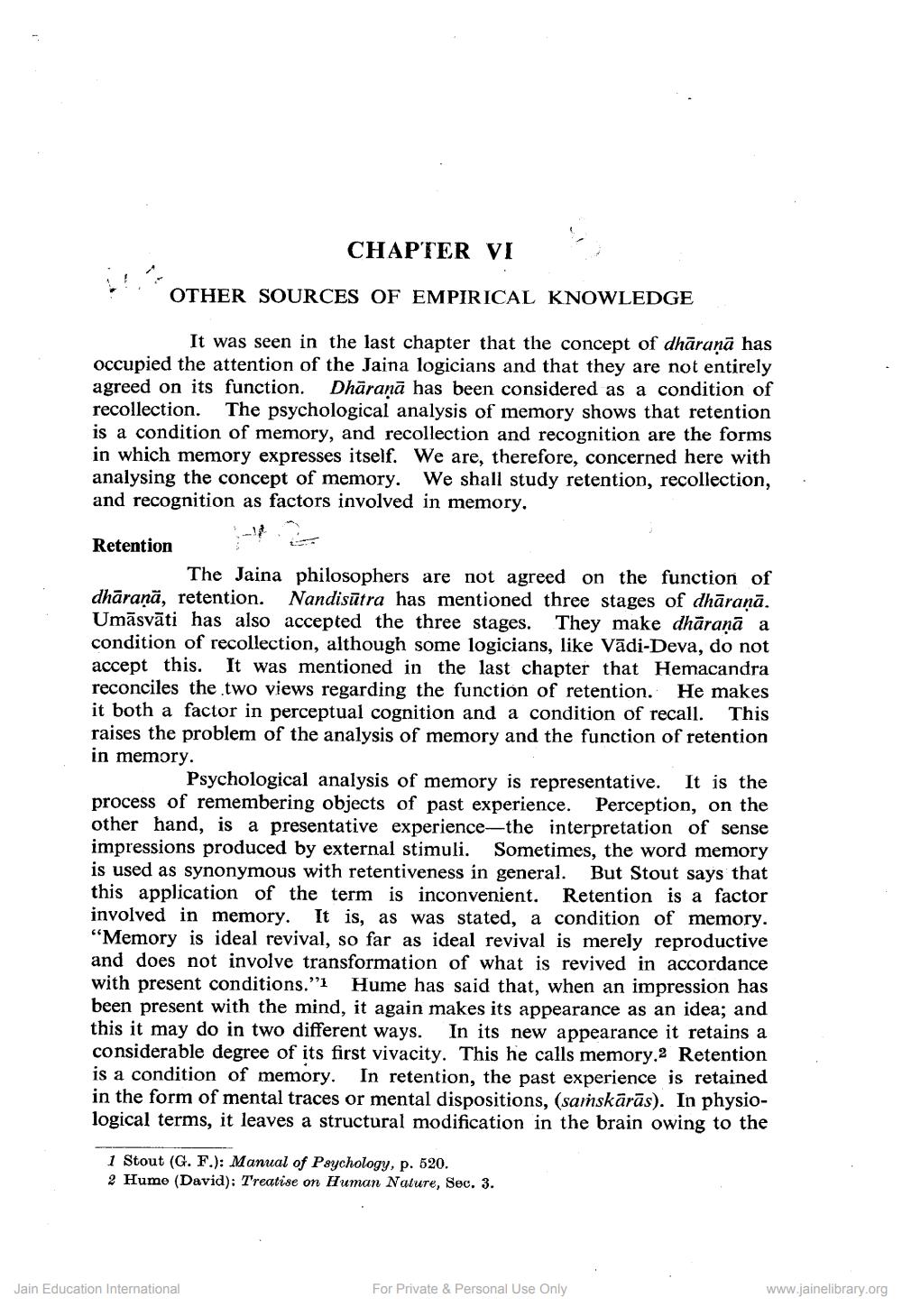________________
CHAPTER VI
OTHER SOURCES OF EMPIRICAL KNOWLEDGE
It was seen in the last chapter that the concept of dharaṇā has occupied the attention of the Jaina logicians and that they are not entirely agreed on its function. Dharaṇā has been considered as a condition of recollection. The psychological analysis of memory shows that retention is a condition of memory, and recollection and recognition are the forms in which memory expresses itself. We are, therefore, concerned here with analysing the concept of memory. We shall study retention, recollection, and recognition as factors involved in memory.
12
Retention
The Jaina philosophers are not agreed on the function of dhāranä, retention. Nandisutra has mentioned three stages of dhāraṇā. Umāsvāti has also accepted the three stages. They make dhāraṇā a condition of recollection, although some logicians, like Vādi-Deva, do not accept this. It was mentioned in the last chapter that Hemacandra reconciles the two views regarding the function of retention. He makes it both a factor in perceptual cognition and a condition of recall. This raises the problem of the analysis of memory and the function of retention in memory.
Psychological analysis of memory is representative. It is the process of remembering objects of past experience. Perception, on the other hand, is a presentative experience-the interpretation of sense impressions produced by external stimuli. Sometimes, the word memory is used as synonymous with retentiveness in general. But Stout says that this application of the term is inconvenient. Retention is a factor involved in memory. It is, as was stated, a condition of memory. "Memory is ideal revival, so far as ideal revival is merely reproductive and does not involve transformation of what is revived in accordance with present conditions."1 Hume has said that, when an impression has been present with the mind, it again makes its appearance as an idea; and this it may do in two different ways. In its new appearance it retains a considerable degree of its first vivacity. This he calls memory.2 Retention is a condition of memory. In retention, the past experience is retained in the form of mental traces or mental dispositions, (samskārās). In physiological terms, it leaves a structural modification in the brain owing to the
1 Stout (G. F.): Manual of Psychology, p. 520.
2 Hume (David): Treatise on Human Nature, Sec. 3.
Jain Education International
For Private & Personal Use Only
www.jainelibrary.org




